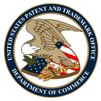Electronic Freedom of Information Act: E-FOIA
President Obama’s FOIA Memorandum and Attorney General Holder’s FOIA Guidelines
On January 21, 2009, President Obama issued a Memorandum on Transparency and Open Government urging all federal executive departments and agencies that FOIA “should be administered with a clear presumption: In the face of doubt, openness prevails.” He called on agencies to “adopt a presumption in favor of disclosure” and to apply that presumption “to all decisions involving [the] FOIA.” This presumption of disclosure includes taking “affirmative steps to make information public,” and applying “modern technology to inform citizens about what is known and done by their Government.” In response to this, on March 19, 2009, Attorney General Eric Holder issued FOIA Guidelines reiterating and stressing the President’s commitment to accountability and transparency. The Guidelines emphasize that the FOIA is to be administered with the presumption of openness. This presumption means that information should not be withheld “simply because [an agency] may do so legally.” Further, the Attorney General has directed that whenever full disclosure of a record is not possible, agencies “must consider whether [they] can make partial disclosure.” The Attorney General also “strongly encourage[s] agencies to make discretionary disclosure of information.”
FOIA Reading Rooms
- Most Frequently Requested Documents
- Patent Trial and Appeal Board Decisions
- Trademark Trial and Appeal Board Decisions
- Office of Enrollment and Discipline Decisions
- Amicus Briefs
- Federal Circuit Decisions of Interest
- Notices of Suit filed with U.S. District Courts
The FOIA Officer operates within the Office of the General Counsel (OGC)
Resources
- FOIA Exemptions
- FOIA Regulations
- Privacy Act Regulations
- FOIA Fees and Fee Waivers
- How to Submit a FOIA Request to the USPTO
- Check FOIA Request Status
- US Department of Commerce FOIA Home Page
- US Department of Justice, Office of Information Policy
- Search Patents
- MPEP: Manual of Patent Examining Procedure
- Search Trademarks
- Acceptable Identification of Goods and Services Manual
- Design Search Code Manual
- TMEP: Trademark Manual of Examining Procedure
- Press Releases
- USPTO Annual Reports
- FY 2011 USPTO Annual FOIA Report
- FY 2010 Dept. of Commerce Annual FOIA Report
Non-USPTO Resources:
Some content linked to on this page may require a plug-in for Adobe Acrobat Reader
Within the USPTO Web site you will find a wealth of public information available at your fingertips. If the information you are seeking is already publicly available somewhere on the USPTO Web site, you will be able to review it on-line or download it for future use.
A great place to start is the USPTO Site Index., which links to recent publications and reference materials.
The Freedom of Information Act (FOIA) is a federal statute which affords any person the right to obtain federal agency records, unless the records (or a part of the records) are protected from disclosure by any of the nine exemptions contained in the law. On October 2, 1996, President Clinton signed into law the Electronic Freedom of Information Act Amendments of 1996 (E-FOIA, for short). E-FOIA makes it possible for you to have electronic access to the USPTO FOIA Reading Room, offering such information as Final Agency Decisions and our most frequently requested FOIA documents.
If you check all these resources for public information but you still don't see what you need, then you may consider filing a FOIA request. FOIA is a federal law which entitles you to any federal agency record as long as one of the FOIA exemptions does not apply. Only records within the USPTO's possession and control as of the date of receipt of a FOIA request will be searched.
Is there a question about what the USPTO can or cannot do that you cannot find an answer for? Send questions about USPTO programs and services to the USPTO Contact Center (UCC). You can suggest USPTO webpages or material you would like featured on this section by E-mail to the webmaster@uspto.gov. While we cannot promise to accommodate all requests, your suggestions will be considered and may lead to other improvements on the website.

